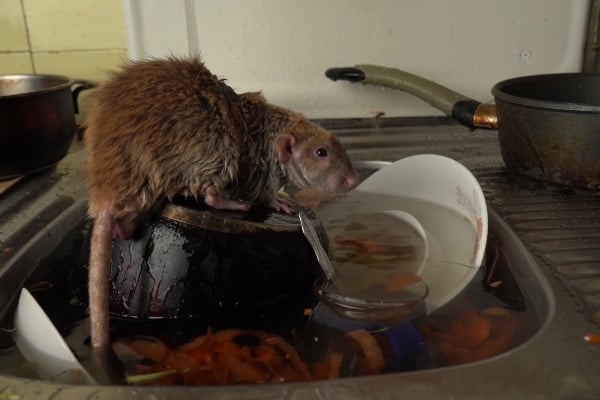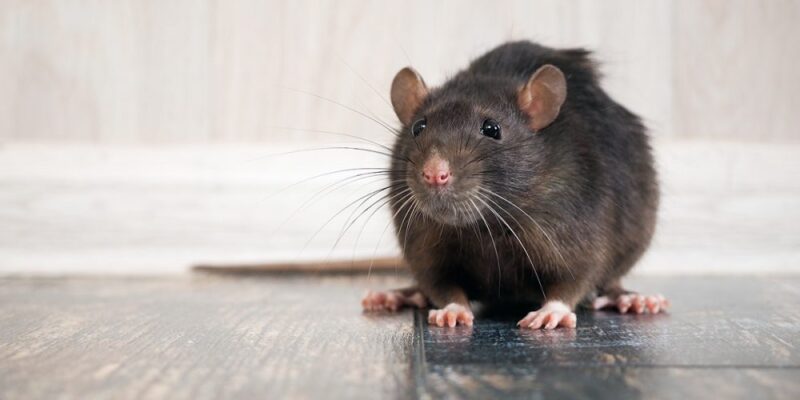Dealing with rat infestations doesn’t mean resorting to harmful poisons or rodenticides, which can pose risks to pets, children, and wildlife. Moreover, handling dead rodents is unpleasant and best avoided when possible. By adopting alternative strategies, you can effectively manage rat populations in a safer, more humane way.
Make Your Space Uninviting to Rats
The first step in rat control is prevention. Rats are drawn to food, water, and shelter, so focus on eliminating these attractants:
- Secure your trash: Use tightly sealed garbage cans and remove food waste promptly.
- Remove pet food: Do not leave pet food out overnight, as it can attract rodents.
- Eliminate standing water: Fix leaks and avoid leaving water in pet bowls when not in use.
- Seal cracks and openings: Inspect your home’s exterior and seal any gaps or holes that rats could use to enter.
Leverage Natural Predators
Encouraging or introducing natural predators is another effective strategy for managing rat populations. Cats, owls, and even certain dog breeds can act as natural deterrents. Owls, for instance, can consume large numbers of rats and mice, making them valuable allies in pest control.
Key Takeaways
- Use humane mechanical traps and natural repellents to eliminate rats without poison.
- Prevent infestations by sealing entry points, managing food and trash, and reducing water sources and clutter.
- Professional pest control services provide safe, thorough, and long-term solutions for severe infestations.
Non-Toxic Methods for Killing Rats
To address rat infestations without resorting to poison, consider these non-toxic alternatives:
1. Mechanical Traps
Mechanical traps are a reliable and humane way to control rat populations. They kill rats instantly, minimizing suffering.
- Snap Traps: These traditional spring-loaded traps are highly effective. Use bait like peanut butter for best results.
- Live Traps: These enclosures capture rats alive, allowing for release or humane disposal. Bait options include cheese, bread, or peanut butter.
- Glue Traps: These sticky platforms trap rats, which must then be humanely euthanized. Place them in high-traffic areas.

2. Repellent Devices
Repellent devices are non-toxic and can deter rats effectively. Options include:
- Ultrasonic Repellers: Emit high-frequency sounds that disrupt rat activity.
- Electromagnetic Repellents: Use electromagnetic fields to keep rodents away.
- Strobe Light Repellers: Disorient rats with flashing lights, discouraging them from staying.
3. Essential Oils
Rats dislike the strong scents of certain essential oils, which can be used as natural repellents:
- Peppermint Oil: Soak cotton balls and place them in affected areas.
- Eucalyptus Oil: Mix with water and spray in rat-prone locations.
- Citronella Oil: Use in diffusers or burners to spread the scent.
4. Plant-Based Repellents
Certain plants emit odors that rats find unappealing. Plant these around your home to deter rodents:
- Mint: Plant mint along the perimeter of your property.
- Daffodils and Marigolds: These toxic plants are avoided by rats.
Preventing Future Infestations
Once you’ve eliminated an infestation, prevention is crucial to keep rats from returning. Focus on eliminating access points and reducing attractants:
Seal Entry Points
Inspect your home’s exterior for holes, cracks, and gaps, particularly around doors, windows, and utility lines. Seal these using materials such as steel wool, metal sheeting, or caulking.
Secure Food Sources
Proper food storage is vital in deterring rats:
- Store grains and dry goods in airtight metal or glass containers.
- Keep pet food in sturdy bins with secure lids.
- Refrigerate or seal fruits and vegetables.
Manage Trash Effectively
Rats are drawn to waste, so proper trash management is essential:
- Use trash cans with heavy lids or locks.
- Clean bins regularly to remove food residue.
- Schedule frequent trash pickups to prevent waste accumulation.
Eliminate Water Sources
Reducing water availability is another key step:
- Fix leaky faucets and pipes promptly.
- Empty pet water bowls when not in use.
- Change water in bird baths frequently.
Reduce Clutter and Nesting Sites
Clutter provides rats with shelter and nesting materials. To make your home less inviting:
- Clear out unused cardboard boxes and other debris.
- Donate or dispose of clothing and items you no longer need.
- Regularly clean garages, basements, and storage areas.
Maintain Outdoor Areas
A clean outdoor environment helps deter rodents:
- Trim grass and bushes to reduce hiding spots.
- Remove yard debris and potential nesting materials.
- Secure sheds and garages to prevent rodent access.
When to Call Professional Pest Control Services
If you notice persistent signs of a rat infestation, such as droppings, gnaw marks, or frequent sightings, it may be time to call a professional. Pest control in new york can provide comprehensive solutions:
- Health and Safety: Professionals use safe, humane methods to remove rats.
- Thorough Inspections: Experts identify all entry points and nests.
- Long-Term Prevention: Pest control services include preventative measures to keep rats from returning.
- Efficiency: Professionals handle infestations quickly and effectively.
- Expertise: Trained technicians tailor strategies to specific situations.
Conclusion
By using non-toxic methods such as mechanical traps, essential oils, and natural predators, and by focusing on prevention through proper sanitation and maintenance, you can effectively eliminate and prevent rat infestations. For severe cases, professional pest control services offer expertise and long-term solutions to keep your home rat-free.











Comments